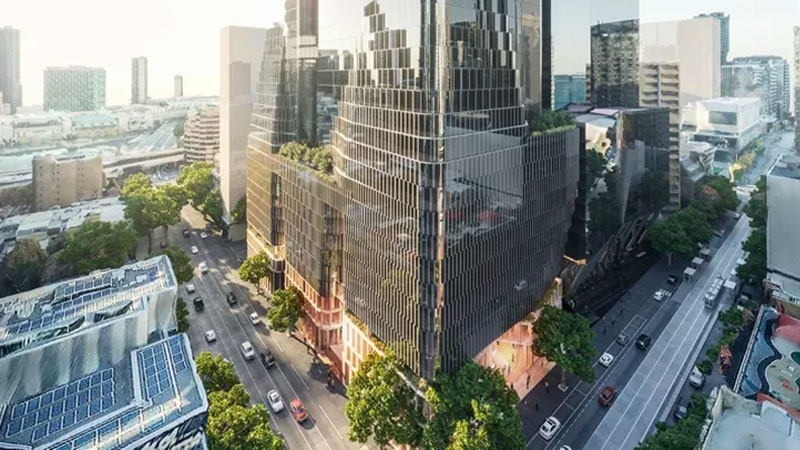Partnerships, Projects Bolster Charter Hall Outlook
Busy property fund manager Charter Hall has upgraded its earnings guidance for the full year with its growing pool of managed funds proving resilient throughout the pandemic.
The property platform, led by David Harrison, has grown its funds under management by 10 per cent since its mid-year results—amassing close to $46.4 billion in assets.
Revenue fell 30.4 per cent to $248.3 million, with net profit down 44.7 per cent to $173.2 million.
The platform’s earnings rely in part on its own co-investments, along with the performance and transaction fees it garners through its funds management role.
A busy six months of deal-making and winning strong inflows of capital to its platform, completing $6.2 billion in transactions, divesting $1.3 billion worth of assets while replenishing its portfolio with $4.9 billion in acquisitions.
Property revaluations of $1.1 billion and expenditure on developments of $1.2 billion also bolstered Charter Hall’s overall funds under management.
The group experienced a particularly strong six months with a slew of new partnerships created.
Charter Hall has now established relationships with sovereign wealth fund GIC to house the Ampol portfolio, expanded its Aldi supermarket logistics partnership with Allianz, and partnered with PGGM to undertake a new logistics platform.
The group also recently announced plans, alongside Canada’s largest pension fund-owned property group Quadreal, for a new commercial development project at North Quay in Brisbane.
“These investors, as well as our Charter Hall direct investors, continue to be attracted by the performance of Charter Hall’s funds and the on-going attractive relative return available in Australian real estate,” Harrison said.
“Because of this, we now have close to one hundred investors across our wholesale platform.”
Charter Hall’s portfolio, spanning five sectors, is currently 8.5 million square metres in size, while its WALE increased from 8.6 to 9.1 years over the last six months as a result of new transactional activity, delivering $2.3 billion dollars of net rental income.
Last month, the group secured one the biggest office-leasing deals of the year, signing federal government agency Services Australia to its new $450 million office tower in Adelaide’s CBD.

It also landed tech giant Amazon as the anchor tenant for its $750 million office at 555 Collins Street, Melbourne.
Despite the hit of the pandemic, occupancy across its portfolio remained strong at 97.1 per cent.
The developer completed $1.8 billion in new assets across the last 12 months and currently commands a $6.6 billion pipeline which it has been actively re-stocking.
Charter Hall Retail REIT completed a record 224 leasing deals at higher rents over the six months to December, as shoppers flocked back to its $3.5 billion portfolio.
Moody’s vice president Saranga Ranasinghe said Charter Hall’s Retail REIT remained credit positive, with its non-discretionary, convenience-based retail assets remaining resilient throughout a difficult period, averaging leasing spreads of 2.5 per cent.
“This is the second highest positive spread over the past five years, at a time when landlords with higher exposure to discretionary retail remain challenged.
“We expect the REIT to continue to benefit from its convenience-based retail strategy, with long weighted-average lease expiries and high occupancy levels supporting stable cash flows,” Ranasinghe said.
Despite the strengthening performance of its retail assets, Charter Hall diversified into industrial property over the reporting period, acquiring a 52 per cent stake in a Coles distribution facility in Adelaide as well as acquiring 70 convenience retail properties from BP in New Zealand.
Charter Hall is forecasting post-tax operating earnings per security of no less than 55¢, excluding any accrued performance fees.
It expects to deliver 6 per cent growth in distributions per security for the full year.















